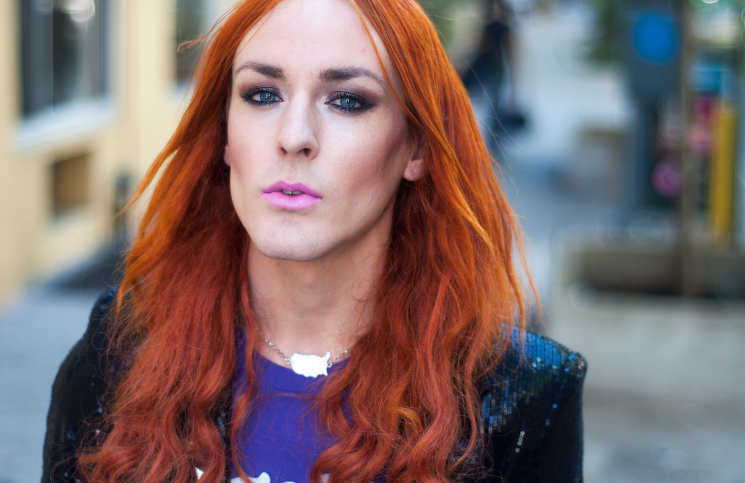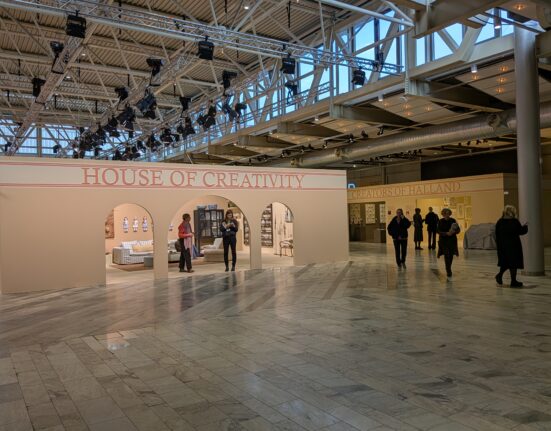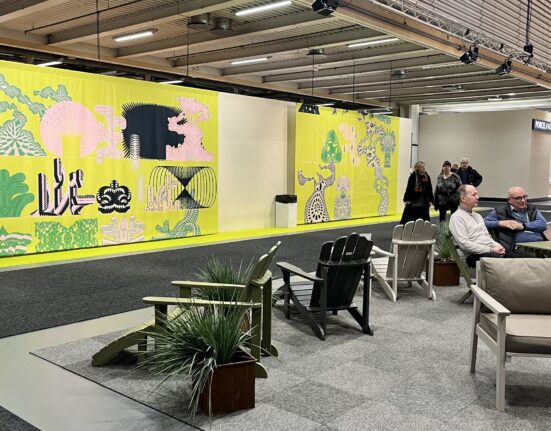Barely 22 years old, New York City-based designer Anton Hörnfeldt has come a long way from his roots in Örnskjöldsvik, Sweden. Although his main pursuit is designing clothing and jewelry, this dynamo inspires in more ways than one. He also recently published his first book, about fighting anorexia.
Your Living City: How did you first get started in fashion?
Anton Hörnfeldt: Fashion is something that’s always been following me around. I remember when I was about 12 years old I wanted to reopen my father’s old hotel. I used to dream about what the staff would wear and what robes to put in the guest rooms. I later got obsessed with the TV show Ally McBeal, it made me want to become a lawyer so that I could wear all the nice Armani suits. When I was in sixth grade I wanted to be an actor because that would allow me to go to galas and wear beautiful couture.
By high school I realized that everything I’ve ever dreamt about has been tied to fashion, and that’s how I realized I wanted to create it.
YLC: Where are you currently in your career?
AH: Right now I’m finishing my associates degree at Fashion Institute of Technology in New York City, which is the school that Calvin Klein and Michael Kors went to. My plan is to continue on to do a bachelor at FIT. I also run a design business on the side, I mainly do silver jewelry and evening wear.
My first book was also published in August last year, it’s only in Swedish so far, but it’s being translated to English soon. It’s an autobiography on eating disorders. I got sick when I was 11 years old and was sick for 7 years. The book is inviting the reader into to a world where you will never be sufficient. I talk about that a lot too when I lecture at schools.
YLC: What does the future hold for you career wise?
AH: I just started writing my second book, which is a sequel to the first one. I’m also planning a book in five years, which needs extensive research. It’s going to be about contextualizing the world of fashion, there’s a lot of symbolism in the industry. When I finish my bachelor’s degree I want to go to London and get a master’s in fashion journalism. At the end of the day, I want to build a global brand of couture. That’s what I want to focus on, but I want to do the writing and public speaking at the same time.
YLC: What’s your opinion of the current fashion scene in Stockholm as compared to New York City?
AH: I’ve spent a lot of time in Stockholm, but I haven’t really worked there. As far as street wear goes, people in Stockholm are generally better dressed than people in New York. But, they play it safe more. When you play it safe, it’s easier to look better dressed. I’d say that the crème de la crème is better in New York City though, because of what I said about playing it safe. In New York, there are a lot more artistic types of people, it’s also a much bigger city so people tend to live out more in the way that they dress.
YLC: Why did you choose to go to New York City, instead of studying in, for example, Stockholm or Borås?
AH: Partially because I wanted to get into one of the best fashion schools in the world and none of them exist in Sweden. Ever since I was a kid I’ve regarded Sweden as my temporary home.
Even though I myself and all of my ancestors are Swedish, I’ve never really felt like I belong in Sweden.
I love Sweden and appreciate it more when I come back to visit, but I don’t think I’m ever going to want to move back. It’s too small, and there’s not enough people or opportunity, I don’t get inspired.
YLC: How does the Swedish sensibility impact your work?
AH: I love that question! What I’ve started to realize this fall at FIT is that I’ve gotten to the point where I know exactly who I am as a fashion designer. I might not know exactly who my customer is, but when I let my dark dramatic side meet my Scandinavian background, the contrast of the two forces within myself is where I create something that I think is interesting.
YLC: What are some of the challenges you’ve met in NYC that you don’t think you would have struggled with had you pursued a career in Sweden?
AH: First of all, education costs. Schools in the US are pretty expensive, especially compared to Sweden where schools are free. The fact that I’m not an American citizen, I don’t have a green card, also makes it difficult. I’m in the US on a student visa so I can’t work, I can’t do internships, and I’m not allowed to run a business. The business I run is managed through Sweden, so my books are in Sweden. It’s hard to compete with an American designer because my sales tax is 16 percent higher than an American designer, to the same client base. Even if I’m handed a job in the US, without them actually sponsoring me, I can’t work for them, which makes my education harder.
YLC: How do you feel you are accepted as a Swedish designer in NYC?
AH: When it comes to social gatherings, from a cultural perspective, I’d say coming from Sweden is a strength. It makes me different and interesting, they’re embracing it, and they love the Scandinavian style. Most people who know anything about Sweden are fascinated by Swedish music or fashion. But, something I’ve found very interesting is that most people in the US don’t know that H&M is Swedish.
Anton doesn’t think small, that’s for sure. With books, magazines, and couture fashion in his future, he still manages to find time to lecture at Swedish schools about recovering from eating disorders, all while studying in New York. You can learn more about Anton and his work here.
Images: Rebecka Vigren
Tina Eriksson
Swedish-American Tina is a Stockholm-based writer, web and graphic designer. In her spare time from her current studies in media technology, she can be found in the kitchen, absorbed in baking experiments for her baking blog.













